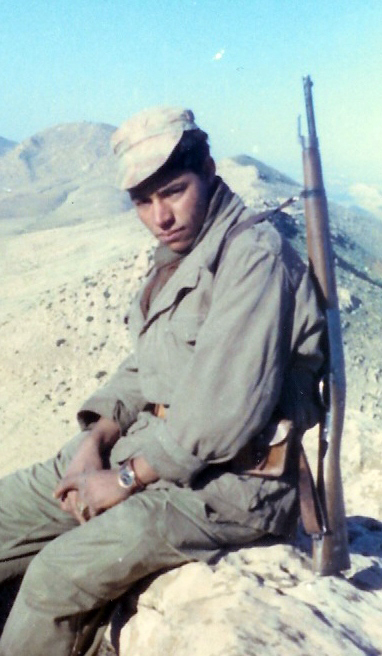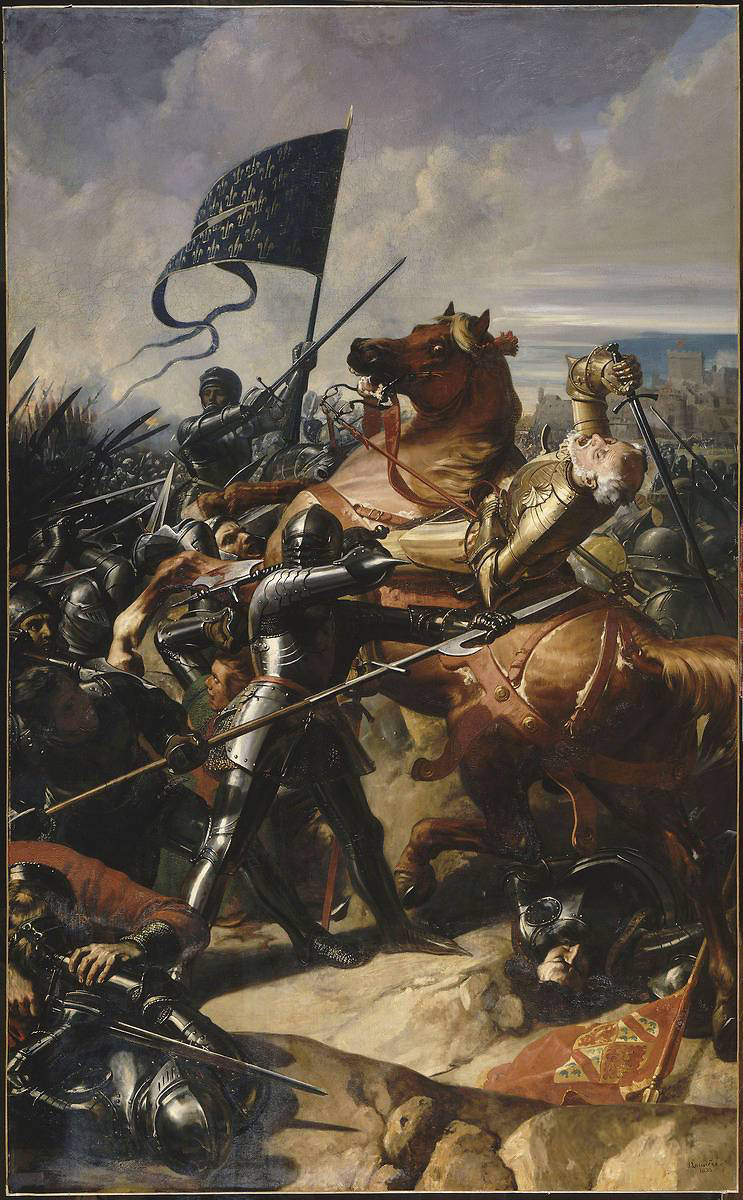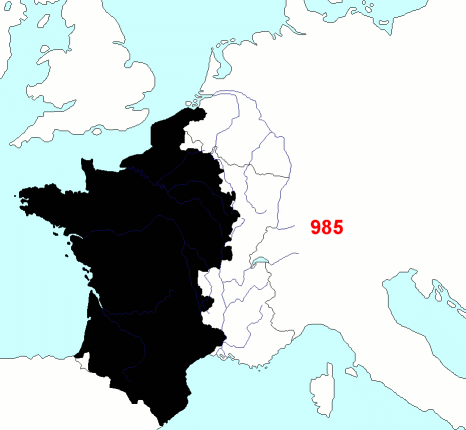|
National Office For Veterans And Victims Of War
The National Office for Veterans and Victims of War (french: Office national des anciens combattants et victimes de guerre (ONACVG) ) is a French governmental agency under the Ministry of the Armed Forces. Its purpose is recognition and support of the nation's war veterans and victims, and directing national policy about war memorials and remembrances. The current agency is the successor to the veteran's organisation first set up in 1916 during the First World War. It underwent several mergers with related veterans and war victims organisations. Its charter was expanded to include victims of terrorist incidents following the November 2015 Paris attacks. History The first office to be created was the National Office of Disabled and Discharged War Veterans created by ministerial decree on 2 March 1916, during the First World War. At the outset the latter was an interagency autonomous public institution managed by a Board of Directors. The law of 2 July 1917 established the ... [...More Info...] [...Related Items...] OR: [Wikipedia] [Google] [Baidu] |
Établissement Public à Caractère Administratif
An Établissement public à caractère administratif (EPA; literally translating to "public establishment of an administrative nature") is, in France, a public law legal person with a certain administrative and financial autonomy to fulfil a mission of public interest (that is not industrial or commercial in nature) under the control of the State or a local authority. It is a category of public undertaking in France, and includes some research institutes and infrastructure operators. On opposition to the Établissements publics à caractère industriel et commercial, which are subject to private law, EPAs are mainly governed by public law. This legal distinction is recognised by the French precedent. Different types of EPA EPAs under the supervision of the Ministry of Armed Forces include: * The Institut supérieur de l'aéronautique et de l'espace (ISAE) * The ENSTA ParisTech * The École nationale supérieure de techniques avancées Bretagne (ENSTA Bretagne) * The École P ... [...More Info...] [...Related Items...] OR: [Wikipedia] [Google] [Baidu] |
Harkis
''Harki'' (adjective from the Arabic ''harka'', standard Arabic ''haraka'' حركة, "war party" or "movement", i.e., a group of volunteers, especially soldiers) is the generic term for native Muslim Algerian who served as auxiliaries in the French Army during the Algerian War of Independence from 1954 to 1962. The word sometimes applies to all Algerian Muslims (thus including civilians) who supported French Algeria during the war. The motives for enlisting were mixed. They are regarded as traitors in independent Algeria and thousands were killed after the war in reprisals despite the Évian Accords ceasefire and amnesty stipulations. In France the term can apply to ''Franco-musulmans rapatriés'' (repatriated French Muslims) living in the country since 1962 - and to their metropolitan-born descendants. In this sense, the term ''Harki'' refers to a social group - a fraction of the French Muslims from Algeria - as distinct from other French of Algerian origin, or from Algerians ... [...More Info...] [...Related Items...] OR: [Wikipedia] [Google] [Baidu] |
French Army
The French Army, officially known as the Land Army (french: Armée de Terre, ), is the land-based and largest component of the French Armed Forces. It is responsible to the Government of France, along with the other components of the Armed Forces. The current Chief of Staff of the French Army (CEMAT) is General , a direct subordinate of the Chief of the Defence Staff (CEMA). General Schill is also responsible to the Ministry of the Armed Forces for organization, preparation, use of forces, as well as planning and programming, equipment and Army future acquisitions. For active service, Army units are placed under the authority of the Chief of the Defence Staff (CEMA), who is responsible to the President of France for planning for, and use of forces. All French soldiers are considered professionals, following the suspension of French military conscription, voted in parliament in 1997 and made effective in 2001. , the French Army employed 118,600 personnel (including the Foreig ... [...More Info...] [...Related Items...] OR: [Wikipedia] [Google] [Baidu] |
Commemoration
Commemoration may refer to: *Commemoration (Anglicanism), a religious observance in Churches of the Anglican Communion *Commemoration (liturgy) In the Latin liturgical rites of the Catholic Church, a commemoration is the recital, within the Liturgy of the Hours or the Mass of one celebration, of part of another celebration that is generally of lower rank and impeded because of a coinci ..., insertion in one liturgy of portions of another * Memorialization *"Commemoration", a song by the 3rd and the Mortal from the album '' Painting on Glass'' See also * Commemorative (other) {{Disambig ... [...More Info...] [...Related Items...] OR: [Wikipedia] [Google] [Baidu] |
France In World War II
France was one of the largest military powers to come under occupation as part of the Western Front in World War II. The Western Front was a military theatre of World War II encompassing Denmark, Norway, Luxembourg, Belgium, the Netherlands, the United Kingdom, France, Italy, and Germany. The Western Front was marked by two phases of large-scale combat operations. The first phase saw the capitulation of the Netherlands, Belgium, and France during May and June 1940 after their defeat in the Low Countries and the northern half of France, and continued into an air war between Germany and Britain that climaxed with the Battle of Britain. After capitulation, France was governed as Vichy France headed by Marshal Philippe Pétain. From 1940 to 1942, while the Vichy regime was the nominal government of all of France except for Alsace-Lorraine, the Germans and Italians militarily occupied northern and south-eastern France. It was not until 1944 when France was liberated with the allied i ... [...More Info...] [...Related Items...] OR: [Wikipedia] [Google] [Baidu] |
France In World War I
The military history of France encompasses an immense panorama of conflicts and struggles extending for more than 2,000 years across areas including modern France, Europe, and a variety of regions throughout the world. According to historian Niall Ferguson, France is the most successful military power in history. It participated in 50 of the 125 major European wars that have been fought since 1495; more than any other European state. The first major recorded wars in the territory of modern-day France itself revolved around the Gallo-Roman conflict that predominated from 60 BC to 50 BC. The Romans eventually emerged victorious through the campaigns of Julius Caesar. After the decline of the Roman Empire, a Germanic tribe known as the Franks took control of Gaul by defeating competing tribes. The "land of Francia", from which France gets its name, had high points of expansion under kings Clovis I and Charlemagne, who established the nucleus of the future French state. In the M ... [...More Info...] [...Related Items...] OR: [Wikipedia] [Google] [Baidu] |
Military History Of France
The military history of France encompasses an immense panorama of conflicts and struggles extending for more than 2,000 years across areas including modern France, Europe, and a variety of regions throughout the world. According to historian Niall Ferguson, France is the most successful military power in history. It participated in 50 of the 125 major European wars that have been fought since 1495; more than any other European state. The first major recorded wars in the territory of modern-day France itself revolved around the Gallo-Roman conflict that predominated from 60 BC to 50 BC. The Romans eventually emerged victorious through the campaigns of Julius Caesar. After the decline of the Roman Empire, a Germanic tribe known as the Franks took control of Gaul by defeating competing tribes. The "land of Francia", from which France gets its name, had high points of expansion under kings Clovis I and Charlemagne, who established the nucleus of the future French state. In the Mi ... [...More Info...] [...Related Items...] OR: [Wikipedia] [Google] [Baidu] |
Bleuet De France
In France, the bleuet de France is the symbol of memory for, and solidarity with, veterans, victims of war, widows, and orphans, similar to the Commonwealth remembrance poppy. The sale of "bleuet de France" badges on 11 November and 8 May is used to finance charitable works for those causes. Origins In the language of flowers, the cornflower symbolizes delicacy and timidity, and indicates that a message has a pure, innocent, or delicate intention. The cornflower – like the poppy – continued to grow in land devastated by the thousands of shells which were launched daily by the entrenched armies of the Western Front. These flowers were often the only visible evidence of life, and the only sign of color in the mud of the trenches. At the same time, the term "bleuets" was used also to refer to the class of conscripted soldiers born in 1895 who arrived in the lead-up to the Second Battle of the Aisne, because of the worn by French soldiers after 1915. The uniform worn ... [...More Info...] [...Related Items...] OR: [Wikipedia] [Google] [Baidu] |
French Department
In the administrative divisions of France, the department (french: département, ) is one of the three levels of government under the national level ("territorial collectivity, territorial collectivities"), between the regions of France, administrative regions and the communes of France, communes. Ninety-six departments are in metropolitan France, and five are overseas department and region, overseas departments, which are also classified as overseas regions. Departments are further subdivided into 332 arrondissements of France, arrondissements, and these are divided into cantons of France, cantons. The last two levels of government have no autonomy; they are the basis of local organisation of police, fire departments and, sometimes, administration of elections. Each department is administered by an elected body called a departmental council (France), departmental council ( [sing.], [plur.]). From 1800 to April 2015, these were called general councils ( [sing.] [plur.]). Each ... [...More Info...] [...Related Items...] OR: [Wikipedia] [Google] [Baidu] |
établissement Public à Caractère Administratif
An Établissement public à caractère administratif (EPA; literally translating to "public establishment of an administrative nature") is, in France, a public law legal person with a certain administrative and financial autonomy to fulfil a mission of public interest (that is not industrial or commercial in nature) under the control of the State or a local authority. It is a category of public undertaking in France, and includes some research institutes and infrastructure operators. On opposition to the Établissements publics à caractère industriel et commercial, which are subject to private law, EPAs are mainly governed by public law. This legal distinction is recognised by the French precedent. Different types of EPA EPAs under the supervision of the Ministry of Armed Forces include: * The Institut supérieur de l'aéronautique et de l'espace (ISAE) * The ENSTA ParisTech * The École nationale supérieure de techniques avancées Bretagne (ENSTA Bretagne) * The École P ... [...More Info...] [...Related Items...] OR: [Wikipedia] [Google] [Baidu] |
Legal Person
In law, a legal person is any person or 'thing' (less ambiguously, any legal entity) that can do the things a human person is usually able to do in law – such as enter into contracts, sue and be sued, own property, and so on. The reason for the term "''legal'' person" is that some legal persons are not people: companies and corporations are "persons" legally speaking (they can legally do most of the things an ordinary person can do), but they are not people in a literal sense. There are therefore two kinds of legal entities: human and non-human. In law, a human person is called a ''natural person'' (sometimes also a ''physical person''), and a non-human person is called a ''juridical person'' (sometimes also a ''juridic'', ''juristic'', ''artificial'', ''legal'', or ''fictitious person'', la, persona ficta). Juridical persons are entities such as corporations, firms (in some jurisdictions), and many government agencies. They are treated in law as if they were persons. Whi ... [...More Info...] [...Related Items...] OR: [Wikipedia] [Google] [Baidu] |
Mort Pour La France
''Mort pour la France'' ( French for "died for France") is a legal expression in France and an honor awarded to people who died during a conflict, usually in service of the country. Definition The term is defined in L.488 to L.492 (bis) of the ''Code des pensions militaires d'invalidité et des victimes de guerre''. It applied to members of the French military forces who died in action or from an injury or an illness contracted during the service during the First and Second World Wars, the Indochina and Algeria Wars, and fighting in Morocco and the Tunisian War of Independence, and to civilians killed during these conflicts. Both French citizens and volunteers of other citizenship are eligible to honor. Administration The words "Mort pour la France" records on the death certificate. The status is awarded by * minister responsible for veterans and victims of war, or * minister responsible for the merchant marine, or * state minister responsible for national defense. Addit ... [...More Info...] [...Related Items...] OR: [Wikipedia] [Google] [Baidu] |





